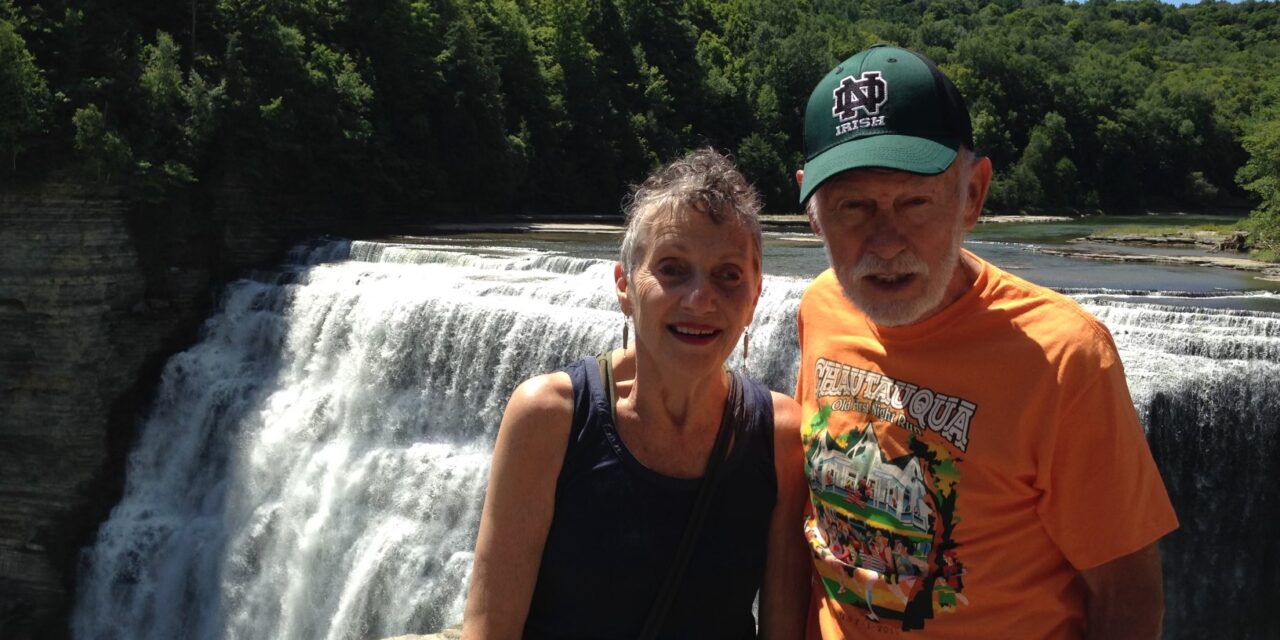by Judith G. Fales
After Ray, my life partner, was diagnosed with dementia and Parkinson’s disease, he lived in a nursing home. Being able to visit him daily allowed me to be his advocate, and assured me that he was doing as well as possible. But after the pandemic hit, everything changed. Ray was unable to manage making calls on his own, so the only time we could talk to one another was when a nurse had time to help him. Not being able to touch Ray, see him, or feel confident that he was receiving the best care left me feeling helpless.
When my friend, a social worker, suggested I contact Hospice & Palliative Care Buffalo (HPCB) to see if a nurse could visit Ray, I replied, “But he isn’t dying,” mistakenly believing that hospice was only available for end-of-life care. I have since learned that HPCB also provides palliative specialized medical care for individuals living with a serious illness, regardless of where they reside, including a nursing facility, hospital, or their own home.
For the rest of Ray’s life, Gloria Cockrell, a wonderful hospice nurse and case manager, became his last friend. She called me during her visits with Ray so we could speak to one another, and followed up with a second call to let me know how he was doing. Ray was not just another case, and when I let Gloria know that Ray had died, she cried. Kelley Clem, HPCB’s Vice President of Advocacy and Education, says, “Ray was a whole human being, rather than a medical algorithm. We focus on the whole person, including their support system, and not just the disease.” Gloria adds, “Anyone important to the patient is important to us.”
All hospice services are similar, but vary depending on the care a person needs during their life cycle, and includes help with physical, emotional, spiritual, financial, and social concerns. While palliative care can begin when a diagnosis is given, hospice care is only available when a patient is estimated to live for six months or less, and when all treatment has stopped.
HPCB’s staff includes 200 nurses and nurse practitioners, 30 social workers, 11 spiritual caregivers, 40 home health aides, expressive therapy specialists (massage, music, and art), spiritual care and grief support counselors, and a therapy dog named Hudson! About 400 to 450 people of all ages receive hospice care daily, and 120 children with medically complex conditions receive palliative care. There is also a perinatal program for families with a pregnancy in which the baby is not expected to live.
Gloria, Kelley, and I hugged after meeting to discuss this article. I left promising myself that when I become discouraged by the hatred and unkindness I often see in our world, I will think of these two incredibly loving women for inspiration. I wish that I had known about HPCB’s palliative care services earlier in Ray’s medical journey.
Don’t wait until death is near to get the help and support you need. Call 716-686-8077 and visit www.hospicebuffalo.com.












